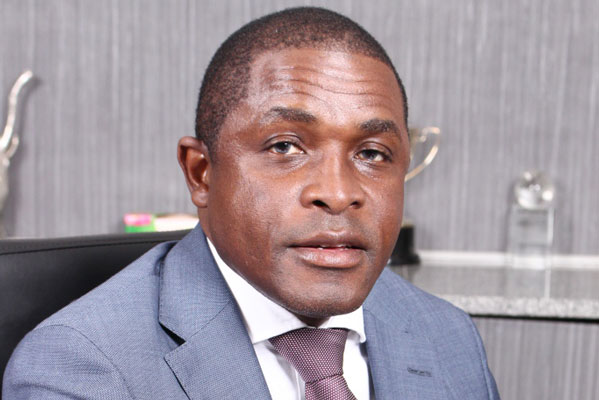
business reporter
The banking sector has not been spared by the harsh economic situation obtaining in the country leading to a restructuring exercise. Banks’ principal source of revenue — lending — has been cut due to fears over non-performing loans. Standardbusiness Reporter Fidelity Mhlanga (FM) sat down with Zimbabwe’s largest financial services group CBZ Holdings CEO Blessing Mudavanhu (BM). Below are the excerpts of the interview.
FM: You began the year by retiring some of your top management. What influenced that move?
BM: A renewal of our five-year strategy coincided with a restructuring exercise as well as some of our executives having their contracts coming to an end. There was mutual agreement for non-renewal.
FM: Going forward, what’s the restructuring strategy?
BM: Last year we embarked on a strategy to resize our Group and also relook at our job grading. The exercise did result in the retrenchment of about 80 employees. As we look ahead, our focus will be on improving and redesigning our operations in response to our environment with the aim to make the Group profitable and better structured for its needs. The roadmap will be centred around improved efficiencies, cost management, ensuring quality of earnings, increasing the contribution of non-banking units to the bottom line and embracing tech-driven channels.
FM: So we can safely say there are no retrenchments in 2020?
BM: As with any institution, human capital is the most valuable asset we have. We, therefore, cannot undermine an asset and expect growth of a company. Whilst we cannot predict the outcome of our economy, we are planning for the best and so management has no plans for retrenchments. Retrenchments will always be a last resort plan.
- Chamisa under fire over US$120K donation
- Mavhunga puts DeMbare into Chibuku quarterfinals
- Pension funds bet on Cabora Bassa oilfields
- Councils defy govt fire tender directive
Keep Reading
FM: So what is your major worry coming into 2020?
BM: Our concern and focus is on our ability as a business to generate revenue to meet our ever-increasing costs. Our operating costs, as you saw towards the end of 2019, were rising much faster than revenue, which is always a cause for concern. So, the initial worry that not only CBZ has, but most institutions have, is the issue around operating costs.
FM: With net interest income having been coming down due to limited lending, what other forms of revenue generation are you pursuing?
BM: In financial services and in particular banking, it is about credit extension. The challenge with lending in an environment where there is very low productivity is that there will be limited good assets or no good home for the money, as most will struggle with repaying. So, what we have is a function of a challenged economic environment leading to low productivity. What we then look at as an alternative source of income is non-interest income which is generated outside credit extension. This income includes transactional income. Our focus on digital platforms, such as our CBZ Touch, has aided in driving non-interest income through associated transactional fees whilst offering convenience for our customers.
FM: Tell us about the Agro Yield Bond that you issued recently?
BM: We launched CBZ Agro Yield as a way to boost contract commercial funding in the country. Its success will mean that we relieve pressure to import grain, for example, and, therefore, the forex can be used for other demands. The way we have come into the agricultural space is to also lessen the burden on the government and to catalyse funding so as to have an avenue where we the private sector can fund agriculture. We then attract a more workable model in terms of the cost of accessing that money. So the less you burden the farmer from the cost of getting money, the more they focus on productivity.
FM: What do you see as investment ready opportunities in the country?
BM: The future of Zimbabwe, we believe, lies with SMEs and in the agricultural space. The main growth sectors within SMEs will be: agriculture as a continued sector mainly because Zimbabwe is agro-based and there is still great room for growth, as well as mining as a sector ripe for business. There are other numerous sub-sectors stemming from the two mains sectors when we look at their value chain.
FM: Are you not concerned about drought threats?
BM: As is always the case in agriculture, weather risk is something we continue to look at ways of managing. When you look at our agricultural loan-book, a sizable portion of it is irrigated land. Whilst that forms some hedging, we would prefer to have 100% good yields.
FM: Apart from the Agro Yields Bond, how much have you lent to agriculture?
BM: Our agribusiness book apart from our Agro-Yield is sitting at $116 million.
FM: Do you have plans to introduce other digital apps that generate income to the group?
BM: As a business, our competitive advantage is to leverage on our digital proposition and we will continue to look for ways to offer convenient and affordable channels for our customers.
Our strategic focus has dwelled much on streamlining the Group’s model towards a digital proposition. We have placed mobile, social and analytics at the core of how we want to drive the business going forward. We are, therefore, successfully leveraging on using technology to build end-to-end tech-driven business models such as our CBZ Touch and our 24- hour Contact Centre to shape our client value proposition.











